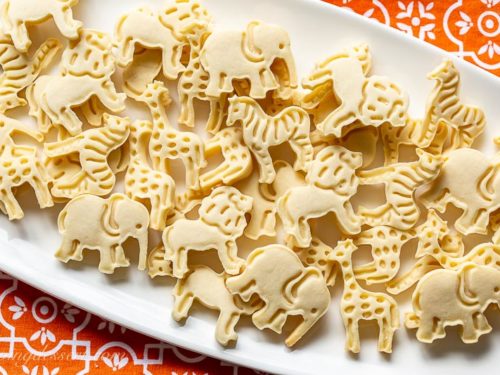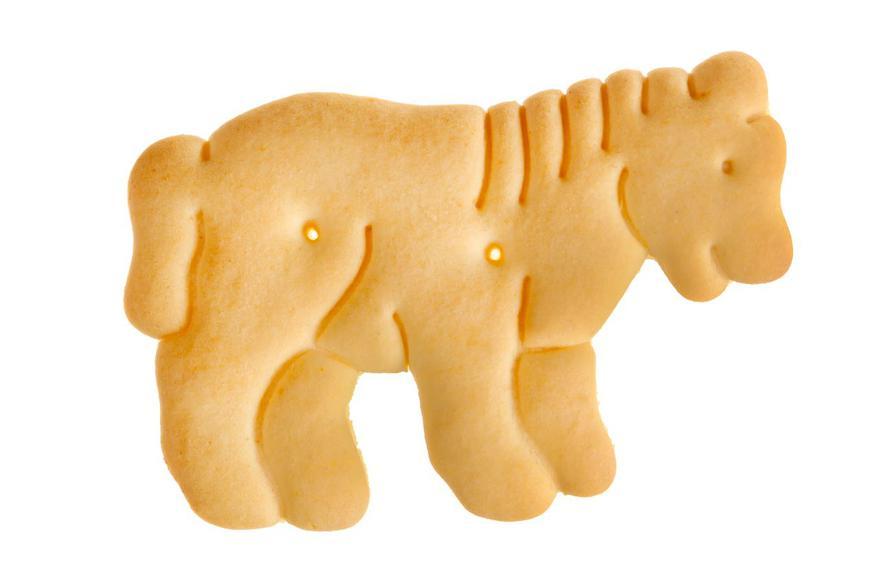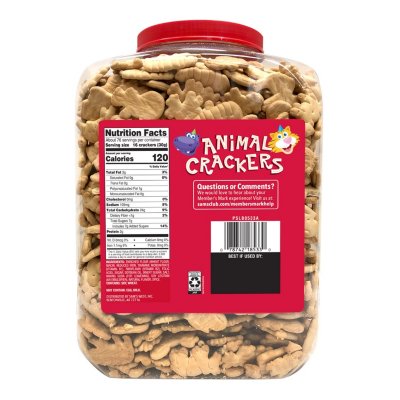Cookies or crackers that are shaped in the form of animals are known as animal crackers. Kids love these crackers, as they love to pick their favorite animals from the lot. Usually, these crackers come in the shape of common zoo animals like zebra, lions, tigers, elephants, monkeys, etc. They make for a favorite snack in the evenings along with a cup of tea.
Can Cats Eat Animal Crackers
These crackers are full of carbohydrates, sugar, and salt. Therefore, while you can enjoy it sometimes as a sinful indulgence, you should exercise caution while feeding the same to your cats. Your cats may look at you innocently putting their tongues out when you are eating animal crackers. Please don’t give in to their cuteness. Animal crackers, whether plain or flavored, are not good for cats.
The digestive system of cats is very different from that of humans. Since they are predatory animals, they can handle only meat and meat-based products very well. You can give them one or two animal crackers occasionally as treats, but don’t allow your cats to get used to these threats. The high sodium content in the crackers can damage their vital organs, while excessive carbs can make them obese.
Can animal crackers kill cats?

No, animal crackers cannot kill cats, provided you give them only one or two crackers occasionally. Though crackers are not listed as one of the most toxic foods for cats, it doesn’t mean these are healthy for the felines, either. Overconsumption of animal crackers can lead to obesity, which can bring about severe health issues in pets.
Why are animal crackers bad for cats?
Sometimes, cats may like the flavor of plain crackers. Even in these cases, you should ensure that you don’t feed them more than two crackers at a time. Also, leave a considerable time gap between the feeding schedules of crackers. This means, don’t feed them crackers frequently, as it can upset their digestive system.
Here are some of the main reasons why animal crackers are not good for cats:
Not enough nutritional content
One of the main risks of feeding crackers to cats is that they don’t offer any nutritional content to the felines. Cats, until they are two months old, depend on their mother’s milk for nutrients. Once they start becoming bigger, they are weaned off their mother’s milk, and they are introduced to a variety of meat and seafood-based dishes in wet and dry forms. These foods contain the required proteins that the cat needs for her growth. You can also give healthy treats, such as fruits and vegetables, occasionally. So, there is really no need for cats to have crackers, as the animals get all their nutrients from their normal foods.
Leads to feline obesity

Due to their carnivorous nature, cats need a lot of protein in their diet. Crackers, on the other hand, contain about 99% carbohydrates. When cats eat too many carbs, it leads to a condition known as feline obesity. If not treated for a long time, feline obesity can lead to other serious health issues like:
- Damage of kidneys
- Diabetes mellitus
- Lethargy
- Imbalance in movements
- Seizure and coma
- Liver problems
- Gastrointestinal issues
- Arthritis
- Infections in the urinary tract
According to a recent study, close to 59% of pet cats all over the world are obese. This is because owners are not taking due care of the diet of their feline friends. Sometimes, severe cases of feline obesity can also lead to death. Hence, it is important to keep cats far away from high-carb foods like crackers, if you want them to stay healthy all through their lifespan.
Leads to salt toxicity
Animal crackers are high in salt content. Overconsumption of salt leads to salt toxicity or sodium poisoning in cats. The early symptoms of salt toxicity in felines are:
- Diarrhea
- Feeling thirsty always, but not drinking enough water, which leads to dehydration
- Vomiting
- Reduced appetite
- Lethargy and very slow/imbalanced body movements
In severe cases of salt toxicity, the fluid starts to build up in the cats’ legs, leading to wobbly movements, damages to the kidney, and urinary tract infections.
Starts rejecting healthy foods

When you continuously feed human foods like animal crackers to cats, the animals try to avoid their usual foods. They get their nutrients from their cat foods and treats. So, if they start rejecting their usual food for want of unhealthy human foods like cookies and crackers, it will make them weak and anemic. Please talk to your veterinarian to know what type of crackers you can feed your cats, and also ask him about the quantity and frequency of feeding so that you don’t overfeed animal crackers to cats.
Are all types of animal crackers bad for cats?
Yes, cats don’t need animal crackers as part of their diet or treats, as they are better off without them. However, if you have to occasionally give them one or two crackers, you can give them plain crackers. The digestive system of cats can handle plain crackers occasionally.
However, they cannot handle the flavored crackers. Please remember to keep your cats away from crackers that contain flavors of onion, garlic, chives, chocolate, grapes, raisins, cheese, or fat trimmings. It would be best to keep animal crackers as plain and flavor-free as possible when you feed them to cats.
Final Word
You can give animal crackers to cats, but only in very small quantities, occasionally. The carbohydrates and salt in the crackers can make cats put on weight easily. Animal crackers come with the risk of feline obesity. When cats become obese, it puts undue stress on their muscular and skeletal system, causing issues like arthritis, stress in the joints, hip dysplasia, heart diseases, and formation of cancerous cells.
Even when giving as treats, please ensure that you give only plain crackers to cats. Please keep them away from crackers that are filled with additional flavorings, to avoid allergic reactions and digestive issues in cats.
